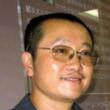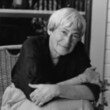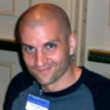Exhalation
Description
More Details
Chiang, Ted Author, Narrator
Hoffman, Dominic Narrator
Landon, Amy Narrator
9781101947906
9781984844460
Table of Contents
From the Book - First edition.
Similar Titles From NoveList
Similar Authors From NoveList
Published Reviews
Booklist Review
Chiang's long-awaited second collection (after Stories of Your Life (2002), the basis for the 2016 movie Arrival) continues to explore emotional and metaphysical landscapes with precise and incisive prose. The stories range in length from ""The Great Silence,"" a brief and mournful account of humanity's search for other intelligent life from the point of view of a parrot, to ""The Lifecycle of Software Objects,"" a novella told from the perspective of the inventors and caretakers of digients, sentient software beings. Many stories explore the dynamics of a radically different cosmos, such as the titular ""Exhalation,"" set in a sealed metal world whose mechanical inhabitants rely on continuous supplies of air to operate their bodies, or the previously unpublished ""Omphalos,"" about a world where visible evidence of an active and creative God is everywhere. Other stories explore scenarios involving radical changes in human consciousness, such as ""Anxiety Is the Dizziness of Freedom,"" where technology that allows communication with alternate selves results in a whole new set of anxieties and complexes. Chiang remains one of the most skilled stylists in sf, and this will appeal to genre and literary-fiction fans alike.--Nell Keep Copyright 2019 Booklist
Publisher's Weekly Review
Hugo- and Nebula-winner Chiang's standout second collection (after 2002's Stories of Your Life and Others) explores the effects that technology and knowledge have on consciousness, free will, and the human desire for meaning. These nine stories introduce life-changing inventions and new worlds with radically different physical laws. In each, Chiang produces deeply moving drama from fascinating first premises. The title story follows a scientist whose self-experimentation reveals both the origin and eventual fate of consciousness. In "What's Expected of Us," a small device horrifically alters human behavior. Chiang's rigorous worldbuilding makes hard science fiction out of stories that would otherwise be fable, as in the Hugo and Nebula-winning novelette "The Merchant and the Alchemist's Gate," a time travel story that employs both relativistic physics and an Arabian Nights-style structure. Others grapple with robots parenting humans, humans parenting AIs, the Fermi paradox, quantum mechanics, and what it means to be a sentient creature facing a potentially deterministic universe. As Chiang's endnotes attest, these stories are brilliant experiments, and his commitment to exploring deep human questions elevates them to among the very best science fiction. Agent: Kirby Kim, Janklow & Nesbit. (May) © Copyright PWxyz, LLC. All rights reserved.
Library Journal Review
Chiang (Stories of Your Life and Others) is always thought provoking, and his latest collection is no exception. "The Lifecycle of Software Objects" considers artificial intelligence, with one woman wondering if they should be treated as living beings. "The Merchant and the Alchemist's Gate" asks, if the past cannot change, is life driven by fate? "The Truth of Fact, the Truth of Feeling" posits a future in which we record every moment of our lives and how that affects us, with a second narrative featuring a man who learns to read and write and its impact on his oral storytelling culture. Two of the nine pieces are new: "Omphalos" deals with creationism as science, and "Anxiety Is the Dizziness of Freedom" centers on talking to our other selves in alternate worlds. VERDICT Any sf reader can dive into these stories and find something exciting. Especially recommended for fans of Greg Egan, Ken Liu, and Netflix's Black -Mirror. [See Prepub Alert, 11/19/18]-Lucy Roehrig, Ann Arbor Dist. Lib., MI © Copyright 2019. Library Journals LLC, a wholly owned subsidiary of Media Source, Inc. No redistribution permitted.
Kirkus Book Review
Exploring humankind's place in the universe and the nature of humanity, many of the stories in this stellar collection focus on how technological advances can impact humanity's evolutionary journey.Chiang's (Stories of Your Life and Others, 2002) second collection begins with an instant classic, "The Merchant and the Alchemist's Gate," which won Hugo and Nebula awards for Best Novelette in 2008. A time-travel fantasy set largely in ancient Baghdad, the story follows fabric merchant Fuwaad ibn Abbas after he meets an alchemist who has crafted what is essentially a time portal. After hearing life-changing stories about others who have used the portal, he decides to go back in time to try to right a terrible wrongand realizes, too late, that nothing can erase the past. Other standout selections include "The Lifecycle of Software Objects," a story about a software tester who, over the course of a decade, struggles to keep a sentient digital entity alive; "The Great Silence," which brilliantly questions the theory that humankind is the only intelligent race in the universe; and "Dacey's Patent Automatic Nanny," which chronicles the consequences of machines raising human children. But arguably the most profound story is "Exhalation" (which won the 2009 Hugo Award for Best Short Story), a heart-rending message and warning from a scientist of a highly advanced, but now extinct, race of mechanical beings from another universe. Although the being theorizes that all life will die when the universes reach "equilibrium," its parting advice will resonate with everyone: "Contemplate the marvel that is existence, and rejoice that you are able to do so."Visionary speculative stories that will change the way readers see themselves and the world around them: This book delivers in a big way. Copyright Kirkus Reviews, used with permission.
Booklist Reviews
*Starred Review* Chiang's long-awaited second collection (after Stories of Your Life (2002), the basis for the 2016 movie Arrival) continues to explore emotional and metaphysical landscapes with precise and incisive prose. The stories range in length from The Great Silence, a brief and mournful account of humanity's search for other intelligent life from the point of view of a parrot, to The Lifecycle of Software Objects, a novella told from the perspective of the inventors and caretakers of digients, sentient software beings. Many stories explore the dynamics of a radically different cosmos, such as the titular Exhalation, set in a sealed metal world whose mechanical inhabitants rely on continuous supplies of air to operate their bodies, or the previously unpublished Omphalos, about a world where visible evidence of an active and creative God is everywhere. Other stories explore scenarios involving radical changes in human consciousness, such as Anxiety Is the Dizziness of Freedom, where technology that allows communication with alternate selves results in a whole new set of anxieties and complexes. Chiang remains one of the most skilled stylists in sf, and this will appeal to genre and literary-fiction fans alike. Copyright 2019 Booklist Reviews.
Library Journal Reviews
Chiang (Stories of Your Life and Others) is always thought provoking, and his latest collection is no exception. "The Lifecycle of Software Objects" considers artificial intelligence, with one woman wondering if they should be treated as living beings. "The Merchant and the Alchemist's Gate" asks, if the past cannot change, is life driven by fate? "The Truth of Fact, the Truth of Feeling" posits a future in which we record every moment of our lives and how that affects us, with a second narrative featuring a man who learns to read and write and its impact on his oral storytelling culture. Two of the nine pieces are new: "Omphalos" deals with creationism as science, and "Anxiety Is the Dizziness of Freedom" centers on talking to our other selves in alternate worlds. VERDICT Any sf reader can dive into these stories and find something exciting. Especially recommended for fans of Greg Egan, Ken Liu, and Netflix's Black Mirror. [See Prepub Alert, 11/19/18]—Lucy Roehrig, Ann Arbor Dist. Lib., MI
Copyright 2019 Library Journal.Publishers Weekly Reviews
Hugo- and Nebula-winner Chiang's standout second collection (after 2002's Stories of Your Life and Others) explores the effects that technology and knowledge have on consciousness, free will, and the human desire for meaning. These nine stories introduce life-changing inventions and new worlds with radically different physical laws. In each, Chiang produces deeply moving drama from fascinating first premises. The title story follows a scientist whose self-experimentation reveals both the origin and eventual fate of consciousness. In "What's Expected of Us," a small device horrifically alters human behavior. Chiang's rigorous worldbuilding makes hard science fiction out of stories that would otherwise be fable, as in the Hugo and Nebula-winning novelette "The Merchant and the Alchemist's Gate," a time travel story that employs both relativistic physics and an Arabian Nights–style structure. Others grapple with robots parenting humans, humans parenting AIs, the Fermi paradox, quantum mechanics, and what it means to be a sentient creature facing a potentially deterministic universe. As Chiang's endnotes attest, these stories are brilliant experiments, and his commitment to exploring deep human questions elevates them to among the very best science fiction. Agent: Kirby Kim, Janklow & Nesbit. (May)
Copyright 2018 Publishers Weekly.































